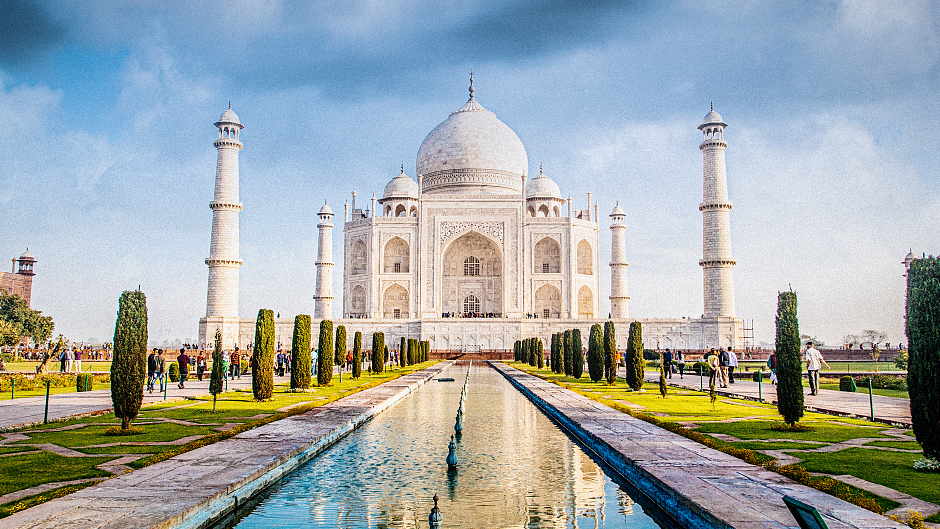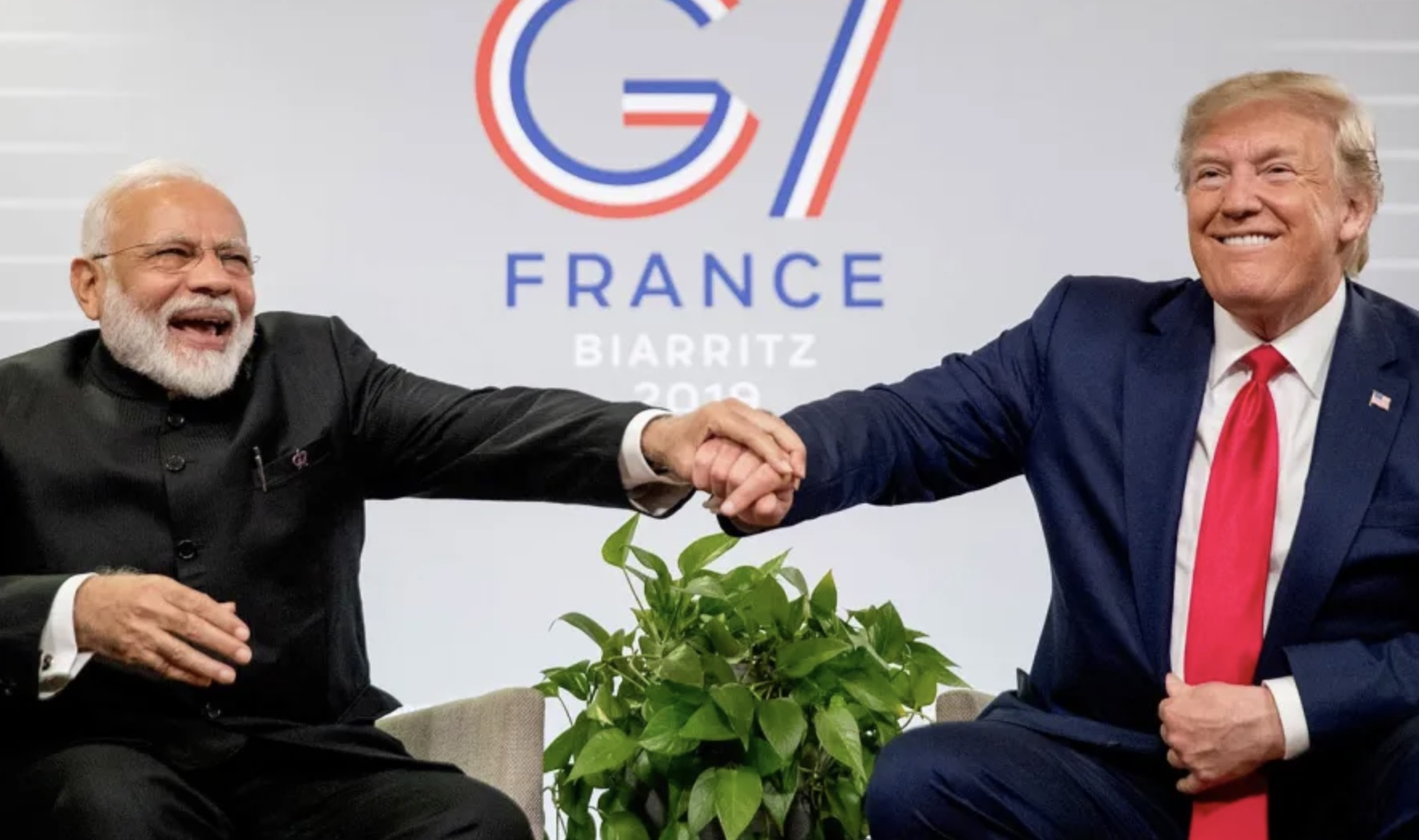
Editor's note: Azhar Azam works in a private organization as a market and business analyst and writes about geopolitical issues and regional conflicts. The article reflects the author's opinions and not necessarily the views of CGTN.
Before making his first trip to India in a couple of days, the U.S. President Donald Trump is vague whether or not he would sign a trade deal with Indian Prime Minister Narendra Modi.
Earlier, he told reporters "We're not treated very well" by the "tariff king" and expressed his skepticism on signing a trade deal but hoped to do "a very big" one perhaps "before the election." Now he says: "We may make a tremendous deal or maybe we'll slow it down" and "do it after the election."
Both the leaders had failed to strike an agreement on the sidelines of UNGA annual session in September. In the absence of a trade deal, the optics of Trump's visit is grossly seen in inaugurations, rallies, smiles and waves or just a payback for "Howdy Modi."
U.S. president will start his maiden visit from Ahmadabad, the largest city of Indian state Gujarat and Modi's hometown. Trump's arrival coincides with a critical juncture when ruling BJP is luring strong international criticism following a series of its discordant moves such as revoking the special status to India-administered Kashmir. The Kashmir tensions have, in particular, stoked intense diplomatic and political strains with Pakistan alongside intensified fire-exchange incidents across the Line of Control (LOC).
Prime Minister of Pakistan Imran Khan has long sought Trump to play a mediation role in the resolving the core dispute of Kashmir. Although the U.S. president initially offered his profound eagerness to intervene, nevertheless he quickly recoiled after a burly opposition from India and to protect American business and strategic interests in the region. Same is the case with other major regional and global players.
If the U.S. and international community continued to overlook the growing military skirmishes along the LOC – the limited conflict can potentially escalate the risk of military confrontation between two-nuclear armed states. Increasing ethno-religious nationalism and anti-Muslim sentiment in India heighten this possibility as the factors might inveigle India to respond with force.

U.S. President Donald Trump and Indian Prime Minister Narendra Modi during G7 summit in Biarritz, France, August 26, 2019. /AP Photo
U.S. President Donald Trump and Indian Prime Minister Narendra Modi during G7 summit in Biarritz, France, August 26, 2019. /AP Photo
A nuclear war between India and Pakistan will be a recipe for disaster. While such a tragedy could result in fatalities of millions of people immediately, it would severely impact the global climate and atmosphere in the form of declined surface sunlight, cooled temperature and reduced precipitation – leading to famines and massive starvation worldwide.
So, prevention of an Indo-Pak nuclear war should be one of the world's topmost priorities that could only be achieved by resolution of the Kashmir spat. China, until now, is the only country that has constantly voiced its concerns over the powder keg situation in Kashmir. Beijing has repeatedly pressed both parties to understand the risk of further escalation and seek solution through dialogue.
But the apparent U.S. strategy to use the Kashmir row as a bargaining chip between India and Pakistan is making it hard to resolve the decades-old issue. On one side, Washington solicits Islamabad to facilitate peace talks with Afghan Taliban and review its active participation in China-Pakistan Economic Corridor (CPEC), ostensibly to back Pakistan perspective on Kashmir.
And on the other side, it is forcing New Delhi to look at Beijing through the American lens in order to endorse its divisive moves in the valley.
As peace and stability in Afghanistan meets Pakistan's and global interests, Islamabad is unstinting in extending its support for Afghan peace process. However, since CPEC is vital for the country's plunging economy, expecting Pakistan to reassess or even slowdown the flagship project is something asking the South Asian nation to offend its own fate.
On the other hand, the flagging economy and the excessive internal engagement would outwit India to dish up the U.S. bellicose objectives in the region. With the most hyped Indo-U.S. strategic partnership in the soup, the "Namaste Trump" will only be an event of pledges and reassurances by either of the sides.
(If you want to contribute and have specific expertise, please contact us at opinions@cgtn.com)